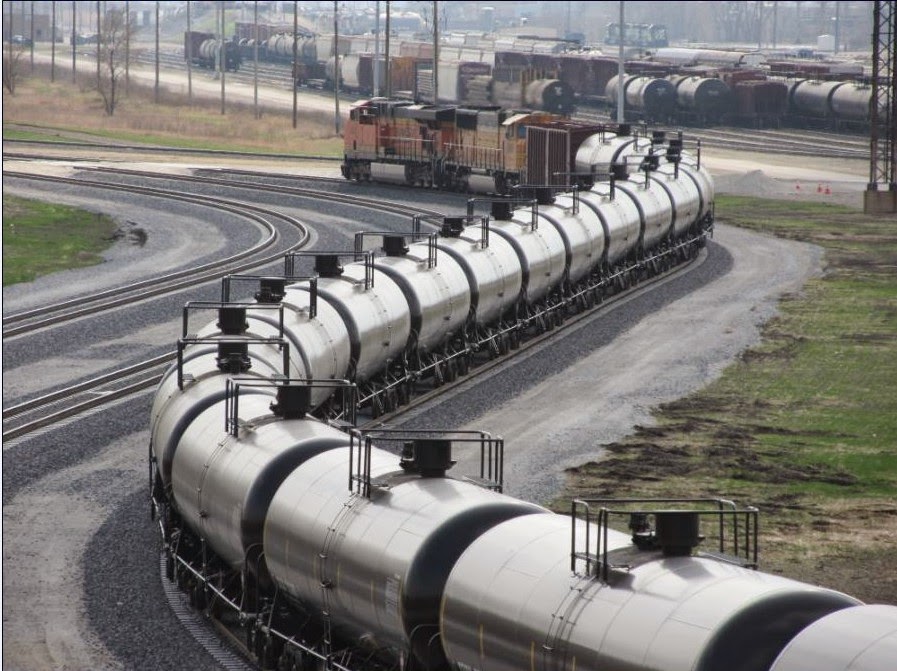A decline in
Bakken oil trains isn’t likely to spell good things for grain farmers,
according to rail observers, the Dickinson Press reports.
Getting grain on trains has been a struggle for Montana’s US$1.5
billion wheat economy for more than a year, during which time critics have
faulted Burlington Northern Sante Fe for leaving grain at the station while
hauling more than a half-million barrels of oil daily. Similar grain loading
complaints have echoed across the Upper Midwest.
Now oil production is seemingly poised to plateau with the
number of active drilling rigs in North Dakota falling by 14 in the last three
weeks and the price per barrel for oil hitting a five-year low Monday.
However, a slowdown isn’t likely to free up the rails for
grain, analyst Terry Whiteside told farmers gathered Tuesday in Billings.
“You would think it would,” Whiteside said. “However, they
are telling me in Wyoming they have not found as much oil through horizontal
drilling in as they have in the Bakken and that’s probably all going to go
westbound. I don’t see it lightening up very much, and then if coal comes on.
We’ve just got a very tight capacity problem for a while.”
Whiteside does rail research and lobbying for several state
grain commissions.
He said the key to improving rail traffic would be getting
railroad companies in the Pacific Northwest to share infrastructure in order to
move grain better. Both the BNSF and Union Pacific have rail lines running
along the Columbia River. If they would agree to run Pacific-bound grain trains
down one track and return trains up the other, grain traffic would improve,
Whiteside said.
In the past year, grain shipments from northern states have
arrived to port several weeks to more than a month late. Oil shipments have
taken some of the blame, but so have bad weather and construction delays.
Speaking to farmers Tuesday during the 2015 Barley Symposium, Whiteside
dismissed weather and construction as causes for delay and put the blame on
oil.
Another consultant disagreed saying shipping conditions have
improved for wheat, but oil hasn’t played a role, according to Lochiel
Edwards of TTMS Group, which does rail consulting and trade organization
representation for farm commodity groups.
Read the article HERE.
The Global Miller
This blog is maintained by The Global Miller staff and is supported by the magazine GFMT
which is published by Perendale Publishers Limited.
For additional daily news from milling around the world: global-milling.com



No comments:
Post a Comment